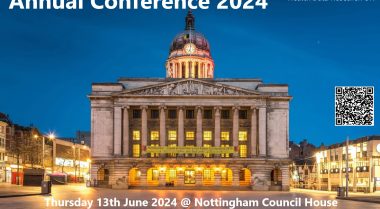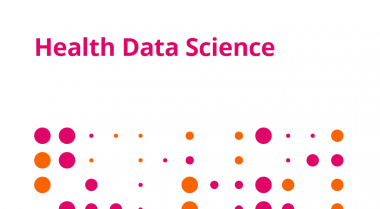Clara: Breaking the silence for neurodiverse voices
4 September 2023
By sharing our unique experiences, we can help researchers and patients learn from each other. Open the door and see how it is. Give one step and you can always go back out.
When I was a teenager, I was told that I would never amount to anything because I showed traits  that were alien to others. I wasn’t aware of my neurodiversity until much later on. So I thought, maybe they’re right? Now, I say it’s never too late to follow your passion. Getting involved in health data research was just a wonderful way of doing that, for me.
that were alien to others. I wasn’t aware of my neurodiversity until much later on. So I thought, maybe they’re right? Now, I say it’s never too late to follow your passion. Getting involved in health data research was just a wonderful way of doing that, for me.
I was always curious about learning more, but I also wanted to impart information about my personal experience. That’s why I initially chose to join HDR UK Voices. I thought that every voice deserves to be heard and I think neurodiverse voices haven’t always been. It was also about making up for lost time. I want people to understand that there are different brains, and they need different things – in meetings, in research and everywhere in life.
Sharing my experiences to make a difference
Initially, I thought there was no way I can do any of this. Then you gain knowledge, and confidence. You find yourself feeling valued.
Now, I’m shocked by the difference I’ve made. I’ve been able to share my experiences and I think that’s really impactful. Researchers, doctors, mental health professionals, and more have listened to me speak and they say it has made a difference in the way they work.
I’ve co-authored peer-reviewed papers and it’s not just a tick-box exercise. I worked really hard on those papers. I also worked with the Healthcare Infection Society recently. I designed and developed a leaflet about norovirus and hand washing. That was one of the hardest things I did. I’ve just received the leaflet by post, and it’s going to be distributed nationally!
However, one of my simplest suggestions had the biggest impact. Conferences are really difficult, even for the general population. Sometimes people just need a break. I was invited to a conference, as part of a research group, and I explained that I couldn’t go. They asked what they could do to help, and I suggested setting aside a quiet room for people. It wasn’t just for people like me, but for anyone. It was so well received that the conference organiser is now going to introduce it to all of their future conferences. It was thanks to me. It’s so good, because it’s something that’s going to change and benefit people, and it’s not hard to do.
I do still have some concerns though, particularly when it comes to genetic material. Anonymising it is difficult. A piece of tissue can be reserved for years. Anyone can trace you because we all have our own unique genetic code. I don’t think many people have the health literacy to understand the potential for something going wrong either. I do trust researchers. There are ethics committees, and the data could potentially benefit people worldwide. Sharing more information is advancing things, but there’s a balance. It’s really important to be transparent. Be honest and don’t take from people without telling them the pros and cons. I personally wouldn’t donate my genetic material though.
Hearing from everyone
I’d also like to see greater promotion of inclusion and diversity, but that’s something that we hear all the time. So what else can we do?
First, we need to stop saying that some people are hard to reach. We’re not. We’re just underrepresented. It’s up to the researchers and healthcare staff to be adaptable in their communication and reach everyone. I always say, ‘Communication is about connecting with people.’
To promote diversity and equality, research needs people that are part of that community working alongside them without exclusion. I once asked why we had face-to-face meetings when some were excluded because of it. Then Covid hit, and suddenly online meetings were possible. Now I’m seeing more and more meetings returning to in-person. Why can’t it be hybrid? In saying that, we’ve come a long way. I always speak about my differences, and I know that little by little a difference is being made.
I can only speak for myself and would never influence anyone to get involved. I think it’s a personal journey but it’s also about listening to or reading about other people’s experiences and thinking… maybe I could do that? If it can motivate you, listen to other people’s stories, but don’t let it be the rule. Your experience isn’t always going to be the same.
Instead, open the door and see how it is. Give one step and you can always go back out.



